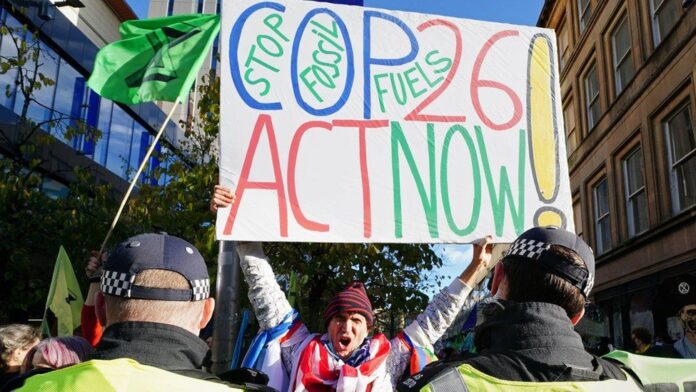When developing nations claim they are unable to stop using coal, they are instructed to ration coal and ordered to shut down companies. However, when developing nations request finance and reparations for climate change, they are turned down. This is classic European hypocrisy—treating emerging nations like their colonies while twisting the law to suit their interests.
The 56th meeting of the subsidiary bodies took place in Bonn earlier this month. The event was the UN Conference on Climate Change. There were ambassadors from Europe as well as representatives from approximately 200 nations and regions. They had to reduce emissions and give money to developing nations so they could fight climate change. Did Europeans concur? They didn’t. In actuality, they desire more coal from the developing world.
The same Europe that criticizes others for using coal and shames emerging nations for not meeting their climate objectives has easily switched to coal because it needs electricity.
The Ukraine conflict has highlighted Europe’s weaknesses. Russia retaliated after the European Union imposed sanctions by cutting off its gas shipments to Europe, which caused the region to start looking for coal. Germany has restarted its coal-fired power plants. The Netherlands has lifted restrictions on coal-plant output. Denmark might follow suit. Italy has proclaimed an energy state of alert. Italian power facilities have been storing coal for several months; they may shortly use it.
Why does Europe need coal?
They require additional gas for their cooling systems because they are experiencing a heat wave. Consequently, power usage has increased.
But from where will this strength originate? 40% of Europe’s gas supply comes from Russia, and that supply is not dependable. Russian exports have already decreased. Europe receives gas from Gazprom, a state-owned gas behemoth in Russia. Gas is sent to Germany via the North Stream pipeline, where it is then dispersed to the rest of the continent.
However, the supply has not been consistent since last week. Russia reduced gas deliveries to Europe by more than 50% over the past week. The Europeans are therefore going to coal.
Developing nations bearing the brunt
Developing nations will, and already do, supply coal to Europe. One of the nations doing that is Colombia. Europe brought in 1.3 million tonnes of coal from Colombia just in March. This year, Colombian exports to the EU have surged by more than 47%.
South Africa is an additional contender. In March of the previous year, there were no shipments to Europe. However, it sent 287,000 tonnes of coal this year. Europe receives coal from the US, Australia, and Indonesia all at the same time. Even so, they might not be able to satisfy the rising demand on the continent.
About 23 wealthy nations account for half of the historical emissions. Germany, France, Italy, Spain, Belgium, the Netherlands, and the United Kingdom make up the majority of them.
Despite having only 7% of the global population, Europe consumes roughly 20% of the world’s resources. Germany recently rejected the European Union’s proposal to restrict the sale of new fossil-fuel vehicles beginning in 2035 because it is the country that produces some of the top automakers, including Volkswagen, BMW, Mercedes, and Audi.
West is hypocritical
The coal issue persists despite the emphasis on oil and gas. The end of the U.N. environmental summit last November served as a signal that the global energy market’s transitional path might be in peril.
When developing nations claim they are unable to stop using coal, they are instructed to ration coal and ordered to shut down companies. However, when developing nations request finance and reparations for climate change, they are turned down. This is classic European hypocrisy—treating emerging nations like their colonies while twisting the law to suit their interests.
The economic benefits of using that fuel, including lower energy costs and the creation of new jobs, trumped environmental concerns for developing economies with large populations and abundant coal deposits. The phrase “security of energy supply” is just starting to make it into our vocabulary, but it is a new reality.
Several nations, led by China and India, are relying on domestic coal resources. Despite repeated claims to reduce emissions, the result is more coal mines, coal-fired power stations, and carbon emissions.
Governments must put the needs of their citizens first rather than putting them through hardship to address a future issue that will likely not arise for 70 years. Governments are not genuinely “thumbing their noses” at the COP26 accord and their individual emissions obligations.
The Energy Mess, the war in Ukraine, soaring global inflation, the continuing pandemic, regional and possibly a global economic recession in the offing, a collapsing stock market, geopolitical tensions, and voters rejecting climate change politicians are forces shaping 2022. Besides, with the rising temperatures, especially the situation in the UK at the moment, one wonders if Europe has its house in order while it is critical of the Orient.




